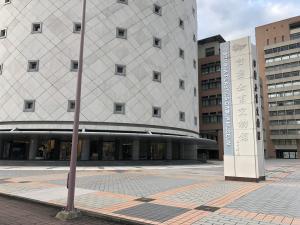Project: Formosa Plastics Global Archive
The Formosa Plastics Global Archive supports a transnational network of people concerned about the operations of the Formosa Plastics Corporation, one of the world's largest petrochemical

The Formosa Plastics Global Archive supports a transnational network of people concerned about the operations of the Formosa Plastics Corporation, one of the world's largest petrochemical


The Formosa Plastics Archive (FPA) (台灣塑膠檔案館) documents environmental disaster caused by one of the world's largest petrochemical companies.
This is a collaborative photo essay about the Formosa Plastics Group Museum in Taoyuan, Taiwan.

This is a case study collection focused on Yunlin and Changhua Counties, Taiwan, including material focused on environmental activism, litigation, and media analysis related to Formosa Plastics' Si

This collection addresses ongoing efforts to monitor and study the enivornmental health impact of the Formosa's Sixth Naphtha Cracker Complex.
I am a (science) education researcher and look at most things in the world through the lens of education. On disaster (or anything else), the questions I ask are - e.g., why should we teach about it? What should we teach about it, and how? How can we support teachers to teach about disasters in their classrooms? My training in educational research has equipped me with the theories, tools and methods that can be utilised to approach these questions. I am hoping that these knowledge, experiences and skills can cross-fertilise with EcoGovLab's expertise in anthropology, SPS and environmental governance.
One of our greatest responsibilities is to prepare the next generation to meet the challenges they will face in the 21st Century, with a deep commitment to the rights and responsibilities of U.S. citizenship. We have a unique opportunity for a community dialogue about the civic values, knowledge, and skills that K-12 students should learn and practice in our public school system. We will create strong community support for our schools to provide effective civic education for students to be successful in college, career and citizenship.
The mission of the Civic Education Center is to restore civility in America by creating opportunities for youth to learn and practice civic values and democratic skills.
Goals
The Mission of CV YEA is "Our mission is to fight environmental injustices in the Central Valley through connecting like-minded individuals".
CV YEA is based in Fresno, CA and led by Executive Director Kamryn Kubose (interview), who we met during our visit to Golden Charter Academy. CV YEA takes part in Clean Vehicle Empowerment Collaborative. The board consists of master's students and environmental activists based in California.
How does the organization collaborate with other organizations, community groups, or stakeholders in pursuing its mission, and what are some of the benefits and challenges of these partnerships?
How does the organization envision its future growth and development, and what strategies are being pursued to achieve these goals?